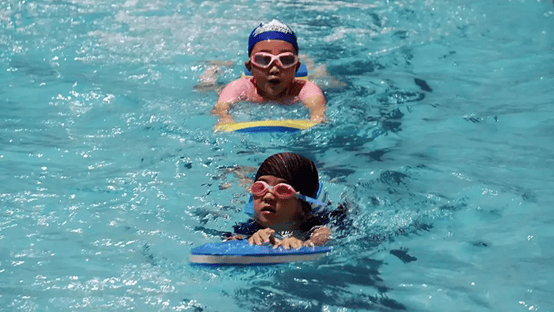Summer vacation is approaching, and at this time every year, parents are delighted to spend an extended period of time with their children. However, they often face many concerns: primarily, children becoming less obedient during the break from school, conflicts escalating between parents and children, and some children experiencing psychological issues, leading to a refusal to communicate with their parents.
Summer vacation is also a peak period for psychological issues in children, and parents should pay more attention to their children’s psychological well-being to help them grow healthily.
1. How to determine if one is mentally healthy?
Summer lethargy, insomnia, and other sleep disorders can cause daytime fatigue in many people. While most individuals can quickly adjust to these situations, those who are introverted, solitary, sensitive, or perfectionistic may be prone to feeling pessimistic, negative, and showing early signs of mental illness.
Sleep disorders can manifest as difficulties falling asleep, shallow sleep, easy waking, vivid dreams, reduced sleep, or insomnia.
Emotional disorders may present as unstable emotions, irritability, easy agitation, sensitivity, suspicion, increased speech, excessive excitement, meddling, anxiety, depression, delayed responses, among others.
Autonomic nervous system dysfunction may cause headaches, dizziness, weakness, loss of appetite, palpitations, tinnitus, weight loss, and other physical symptoms.
Recurrence of hallucinations, auditory hallucinations, delusions: Symptoms that had disappeared reappear sporadically and non-systematically, with patients themselves recognizing these as abnormal mental symptoms.
Other symptoms: lack of concentration, inability to complete tasks, physical discomfort, or hypochondriacal symptoms.
2. Why are there more psychological issues in children during summer vacation?
During summer vacation, many primary and secondary school students may become excessively self-indulgent, leading to laziness, irregular daily routines, prolonged engagement with the internet and electronic devices, all of which can give rise to various psychological issues. The main reasons for this are as follows.
01. Disruption of study and life routines
Children suddenly relax from their intense study routines, potentially losing focus and motivation, resulting in irregular lifestyles, staying up late playing games, and feeling lethargic during the day. Prolonged exposure to such a state can lead to emotional disorders, including depression, anxiety, and obsessive-compulsive disorder, and in severe cases, can lead to bipolar emotional disorders and acute stress-related mental disorders.
02. Sudden change in interpersonal relationships
Many children may lack companionship at home during summer vacation and cannot communicate with classmates as they do at school. Reduced social interaction can lead to feelings of emptiness and boredom in children, eventually leading to self-isolation and reluctance to go out.
03. Escalation of conflicts between parents and children
With children spending more time at home with their parents during holidays, previously inconspicuous conflicts start becoming more apparent. Moreover, adolescents, being more rebellious and self-centered, may intensify parent-child tensions, leading to arguments. If parents fail to handle these conflicts properly, the situation may worsen to the extent of the child running away from home.
04. Discrepancy between ideals and reality
Actual summer activities may significantly differ from the idealized vacation. Some parents tend to overdo it during the summer by enrolling their children in various remedial classes, increasing academic burdens and leaving little time to enjoy a genuine vacation. This can result in not only ineffective remedial effects but also lead to psychological problems in children.
3. Summer Psychological Adjustment Guide
1. Plan summer activities rationally
Having a regular routine is the basis for reshaping inner order and security. During summer vacation, parents can create a sensible holiday schedule for their children, including dedicated study time to consolidate and preview academic knowledge, while also allocating enough time for outdoor activities and hobbies to maintain physical and mental health.
2. Limit phone use and browse the internet sensibly
Extended use of electronic devices can strain eyesight, disrupt our circadian rhythms, and affect overall well-being. During the break, it’s advisable to set clear limits on device usage, maintain a regular schedule regardless of phone use, and avoid using phones while doing homework. Additionally, focus on positive information, use technology wisely, browse the internet healthily, and refrain from getting lost in the online world.
3. Learn to regulate negative emotions
During the vacation, children may face setbacks and difficulties, leading to negative emotions. To address these feelings, children can learn to express and vent their emotions positively. They can try communicating with family and friends, sharing their feelings and concerns. Additionally, activities like journaling and drawing can serve as effective emotional outlets.
4. Maintain healthy social connections
Sharing experiences and feelings with others can bring joy and a sense of trust and support to adolescents. Encourage children to participate in group activities, outdoor sports, or small gatherings to share experiences and feelings with others. Through interaction with peers, children can develop social skills, strengthen friendships, and build trust among themselves.
5. Seek help promptly
If someone experiences prolonged negative emotions, it’s crucial to seek help actively. Try talking to friends and family about your feelings. If anxiety persists and begins to affect daily life, seek assistance from professionals promptly. Remember, mental health is equally important, so don’t ignore your inner needs.


